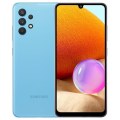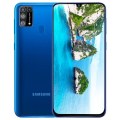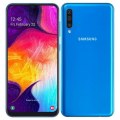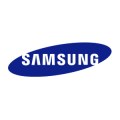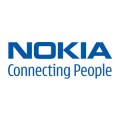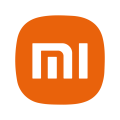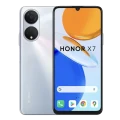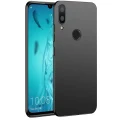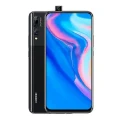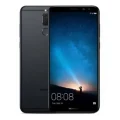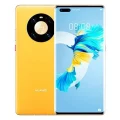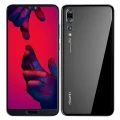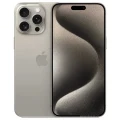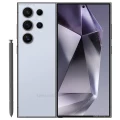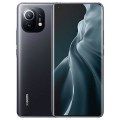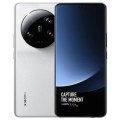- Awesome page
- Latest Mobile
- Smartphones
- Samsung Galaxy F23
Samsung Galaxy F23
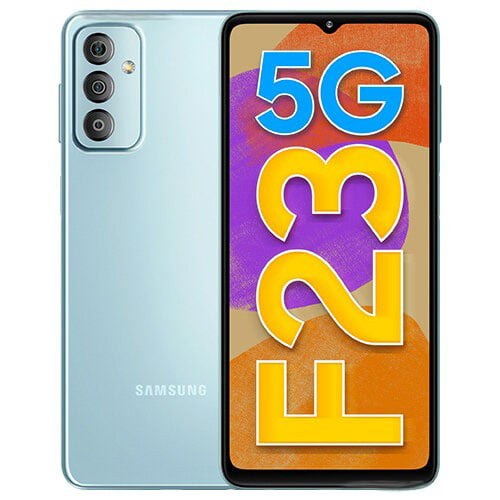


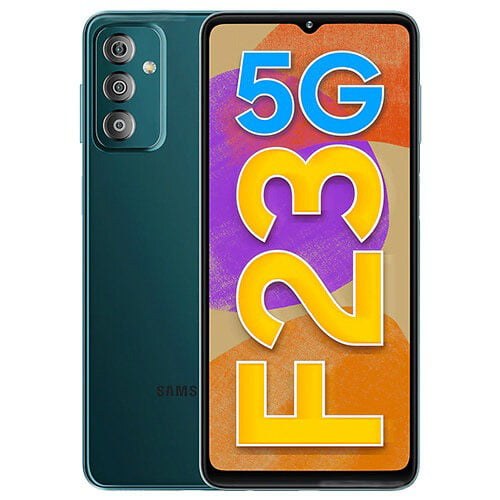
Samsung Galaxy F23 Price in Bangladesh
The Samsung Galaxy F23 Price in Bangladesh is BDT 33,999, available in two variants with 128GB of storage and either 4GB or 6GB of RAM. This smartphone comes with a powerful 5000mAh battery, supporting 25W fast charging to keep you powered throughout the day.
Running on Android 12, the Samsung Galaxy F23 is powered by the Qualcomm SM7225 Snapdragon 750G 5G (8 nm) chipset, providing smooth performance and 5G connectivity for faster internet speeds. The Samsung Galaxy F23 Price in Bangladesh offers great value for those seeking a mid-range smartphone with 5G capabilities, long battery life, and reliable performance.
Specifications
General
| Model | Samsung Galaxy F23 |
| Announced | 2022, March 08 |
| Released | 2022, March 16 |
| Status | Available |
| Official price | 6GB 128GB ৳33,999 |
| Unofficial price | 6GB 128GB ৳20,000 |
Design
| Dimensions | 165.5 x 77 x 8.4 mm (6.52 x 3.03 x 0.33 in) |
| Weight | 198 g (6.98 oz) |
| Colors |
Aqua Blue, Forest Green |
Network
| Technology | GSM / HSPA / LTE / 5G |
| 2G Network |
GSM 850 / 900 / 1800 / 1900 - SIM 1 & SIM 2 |
| 3G Network |
HSDPA 850 / 900 / 1700(AWS) / 1900 / 2100 |
| 4G Network |
1, 2, 3, 4, 5, 7, 8, 12, 17, 20, 26, 28, 38, 40, 41, 66 |
| 5G Network |
1, 3, 5, 7, 8, 20, 28, 38, 40, 41, 66, 78 SA/NSA |
| GPRS <strong>GPRS</strong> (General Packet Radio Service) is a packet oriented mobile data service on the 2G and 3G cellular communication system's global system for mobile communications (GSM), Generally, GPRS is used for the purpose of wireless data transfer, such as sharing pictures and videos or browsing the Internet via a mobile phone connection. | |
| EDGE <strong>EDGE</strong> (Enhanced Data GSM Environment) is a wireless network technology generally considered the next step in the 2G network offers data transfer rates up to four times faster than ordinary GSM networks, Generally, EDGE is used for the purpose of wireless data transfer, such as sharing pictures and videos or browsing the Internet via a mobile phone connection. | |
| Speed | HSPA 42.2/5.76 Mbps, LTE-A, 5G |
Display
| Display Type <strong>Display Technology => </strong> A number of display technologies and types used in mobile phones => TFT (Thin Film Transistor), IPS (In-Place Switching), OLED (Organic Light Emitting Diode), AMOLED (Active-Matrix Organic Light-Emitting Diode), Super AMOLED (an even advanced version of AMOLED), Resistive Touchscreen (Resistive touchscreens contain two layer of conductive material with a very small gap between them which acts as a resistance), Capacitive Touchsceen (Capacitive touchscreen technology consists of a layer of glass coated with a transparent conductor) | IPS LCD capacitive touchscreen, 16M colors |
| Size | 6.6 inches, 104.9 cm2 (~82.3% screen-to-body ratio) |
| Resolution | 1080 x 2408 pixels, 20:9 ratio (~400 ppi density) |
| Features | 120Hz |
Camera
Main camera
| Camera Setup | Triple |
| Primary <strong>Camera</strong> is able to capture photographs and usually videos, The most important characteristics of a camera are the resolution (measured in megapixels), lens focus type (fixed or automatic), higher megapixel cameras are known to capture higher quality photos, but not always a good measurement of the photos quality. |
50 MP, f/1.8, (wide), PDAF 8 MP, f/2.2, 123˚ (ultrawide), 1/4.0&amp;quot;, 1.12µm 2 MP, f/2.4, (macro) |
| Features |
LED flash, panorama, HDR |
| Video | 1080p@30fps |
Selfie camera
| Camera Setup | Single |
| Primary <strong>Camera</strong> is able to capture photographs and usually videos, The most important characteristics of a camera are the resolution (measured in megapixels), lens focus type (fixed or automatic), higher megapixel cameras are known to capture higher quality photos, but not always a good measurement of the photos quality. |
8 MP, f/2.2, (wide) |
| Features |
1080p@30fps |
Hardware
| Chipset <strong>Chipset</strong> is a group of integrated circuits designed to perform one or a more dedicated functions, often with real time computing constraints, Popular smartphones are equipped with more advanced embedded chipsets that can do many different tasks depending on their programming. | Qualcomm SM7225 Snapdragon 750G 5G (8 nm) |
| CPU <strong>CPU</strong> (Central Processing Unit) mostly known as processors, CPU processes instructions in order to carry out certain functions that make your device operate properly. Processors are often described as the brain of computers, smartphones and tablets, Smartphones and tablets rely on processors to carry out their every task, Processors are an incredibly important factor in selecting any type of computing device, including your smartphone. | Octa-core (2x2.2 GHz Kryo 570 & 6x1.8 GHz Kryo 570) |
| GPU <strong>GPU</strong> (Graphics Processing Unit) is a single-chip processor designed to rapidly manipulate and alter memory to accelerate the creation of images in a frame buffer intended for output to a display, This includes things such as lighting effects, object transformations, and 3D motion. | Adreno 619 |
| RAM (Memory) <strong>RAM</strong> (Random Access Memory) is a type of computer memory that can be accessed randomly, any byte of memory can be accessed without touching the preceding bytes that allows information to be stored and accessed quickly from random locations. RAM is the most common type of memory found in computer systems, smartphones, tablets and other electronic devices. | 4/6 GB |
| Internal Storage <strong>Internal Storage</strong> is a data storage space (flash memory) mostly used in smartphones, tablets and other electronic devices where operating system, apps, music, photos, videos, files and other user data Is stored. | 128 GB |
| Sensors <strong>Sensors</strong> are electronic components that detects and responds to some type of input from the physical environment. The specific input could be light, heat, motion, moisture, pressure and location, The output is generally a signal that is converted to use in computing systems, a location sensor, such as a GPS receiver is able to detect current location of your electronic device. |
Fingerprint (side-mounted), accelerometer, gyro, compass Virtual Proximity Sensing |
Connectivity
| Bluetooth <strong>Bluetooth</strong> is a wireless communications technology for exchanging data between mobile phones, headsets, computers and other network devices over short distances without wires, Bluetooth technology was primarily designed to support simple wireless networking of personal consumer devices. | 5.0, A2DP, LE |
| Infrared <strong>Infrared</strong> connectivity is an old wireless technology used to connect two electronic devices. It uses a beam of infrared light to transmit information and so requires direct line of sight and operates only at close range. | |
| USB | USB Type-C 2.0, USB On-The-Go |
| GPS <strong>GPS</strong> The Global Positioning System is a satellite-based radio navigation system, GPS permits users to determine their position, velocity and the time 24 hours a day, in all weather, anywhere in the world, In order to locate your position, your device or GPS receiver must have a clear view of the sky. | Yes, with A-GPS, GLONASS, GALILEO, BDS |
| NFC <strong>NFC</strong> (Near field communication) is a set of standards for smartphones and similar devices to establish peer-to-peer radio communications with each other by touching them together or bringing them into proximity, usually no more than a few inches. |
Battery
| Battery Type <strong>Battery Type => </strong> Cell phones run on various kinds of batteries depending on the manufacturer, phone size or shape and features. There are basically four types of cell phone batteries => Lithium Polymer, Lithium Ion, Nickel Metal Hydride and Nickel Cadmium. | Non-Removable Li-Po |
| Capacity <strong>Battery Capacity</strong> is a measure (typically in Amp-hr) of the charge stored by the battery, and is determined by the mass of active material contained in the battery. The battery capacity represents the maximum amount of energy that can be extracted from the battery under certain conditions. | 5000 mAh |
| Charging Charging | Fast charging 25W |
Samsung Galaxy F23 Review – The Best Mid-Range Marvel?
In the bustling world of smartphones, where new models emerge almost daily, the Samsung Galaxy F23 stands out as a beacon for tech enthusiasts and Samsung fans alike. This mid-range marvel promises to blend performance, design, and affordability seamlessly. But does it truly deliver on its promises? This in-depth review will help you uncover the reality behind the hype.
Sleek Design and Vibrant Display
The first thing you notice about the Samsung Galaxy F23 is its sleek, modern design. It feels solid and premium in hand, a testament to Samsung’s commitment to quality. The device sports a 6.5-inch Super AMOLED display, which offers vibrant colors and deep blacks that make any content pop.
Samsung has also ensured that the display is not just about looks. With a refresh rate of 90Hz, scrolling through apps and browsing the web feels incredibly smooth. The screen’s Full HD+ resolution further enhances the viewing experience, ensuring everything from videos to text appears crisp and clear.
However, it’s not all perfect. The plastic back, while aesthetically pleasing, may not feel as luxurious as some glass-back competitors. Yet, it does contribute to a lighter, more comfortable device that’s easier to handle, especially for extended periods.
Performance That Packs a Punch
Under the hood, the Galaxy F23 is powered by the Qualcomm Snapdragon 765G processor. This chip is known for striking a great balance between performance and efficiency. Paired with 6GB of RAM, the device handles multitasking with ease, allowing you to switch between apps without any noticeable lag.
Whether you’re gaming, streaming, or working, the Galaxy F23 delivers a consistently dependable performance. Games like PUBG and Asphalt 9 run smoothly, with minimal frame drops, thanks to the Adreno 620 GPU.
Battery life is another strong suit for the F23. With a 5,000mAh battery, it easily lasts a full day of heavy use. Even with extensive gaming, video streaming, and social media usage, you won’t find yourself scrambling for a charger before the day ends.
Capturing Moments with Clarity
For many, the camera is the heart of a smartphone, and the Galaxy F23 doesn’t disappoint. It features a versatile quad-camera setup, headlined by a 64MP primary sensor. Photos are sharp, with vibrant colors and good dynamic range, especially in well-lit conditions.
The ultra-wide 12MP lens is perfect for capturing landscapes or large group shots, offering a broader perspective without significant distortion. The 5MP macro lens allows for detailed close-ups, though it requires good lighting to truly shine. Lastly, the 2MP depth sensor enhances portrait shots by providing a professional-looking bokeh effect.
Video recording capabilities are equally impressive, with options for 4K recording at 30fps. The stabilization, while not perfect, is adequate for casual shooting. Night mode and other software enhancements further extend the camera’s versatility, making it a solid choice for photography enthusiasts.
Intuitive Software and Smooth UI
Running on Android 11 with Samsung’s One UI 3.1, the Galaxy F23 offers an intuitive and user-friendly experience. Samsung has done a commendable job at optimizing its software, ensuring smooth performance across the board. The interface is clean, with minimal bloatware, and customization options abound.
Features like Edge Panel add convenience, allowing quick access to your favorite apps and functions. The device also supports Samsung Pay, Knox security, and other ecosystem benefits that Samsung users have come to love.
However, some users might find the pre-installed apps a bit overwhelming, though they can be easily disabled or uninstalled. Regular software updates ensure that the device stays current with the latest features and security patches, providing peace of mind for long-term use.
Is It Worth Your Money?
When evaluating the value for money, the Samsung Galaxy F23 holds its own against competitors in the same price range. Priced competitively, it offers a compelling mix of premium features without breaking the bank.
Compared to similar devices like the OnePlus Nord and Xiaomi Mi 10 Lite, the F23 stands out with its superior display quality, robust battery life, and Samsung’s reliable software ecosystem. While it might fall short in some areas like build materials, the overall package is hard to fault.
The device is perfect for users looking for a balanced smartphone that excels in multiple areas without any significant weaknesses. Whether you’re a student, a professional, or someone who loves capturing memories on the go, the Galaxy F23 offers something for everyone.
Final Thoughts on the Samsung Galaxy F23
In conclusion, the Samsung Galaxy F23 is a worthy addition to the mid-range smartphone market. Its powerful performance, vibrant display, and versatile camera setup make it a fantastic choice for tech enthusiasts and everyday users alike.
While it might not revolutionize the smartphone industry, it offers a reliable and enjoyable user experience that few competitors can match at this price point. If you’re in the market for a new smartphone that delivers great value without compromising on quality, the Galaxy F23 should be at the top of your list.
Ready to experience the Samsung Galaxy F23 for yourself? Share your thoughts with us, consider taking the plunge, or explore more of Samsung’s innovative products. Your next favorite gadget might just be a click away.
